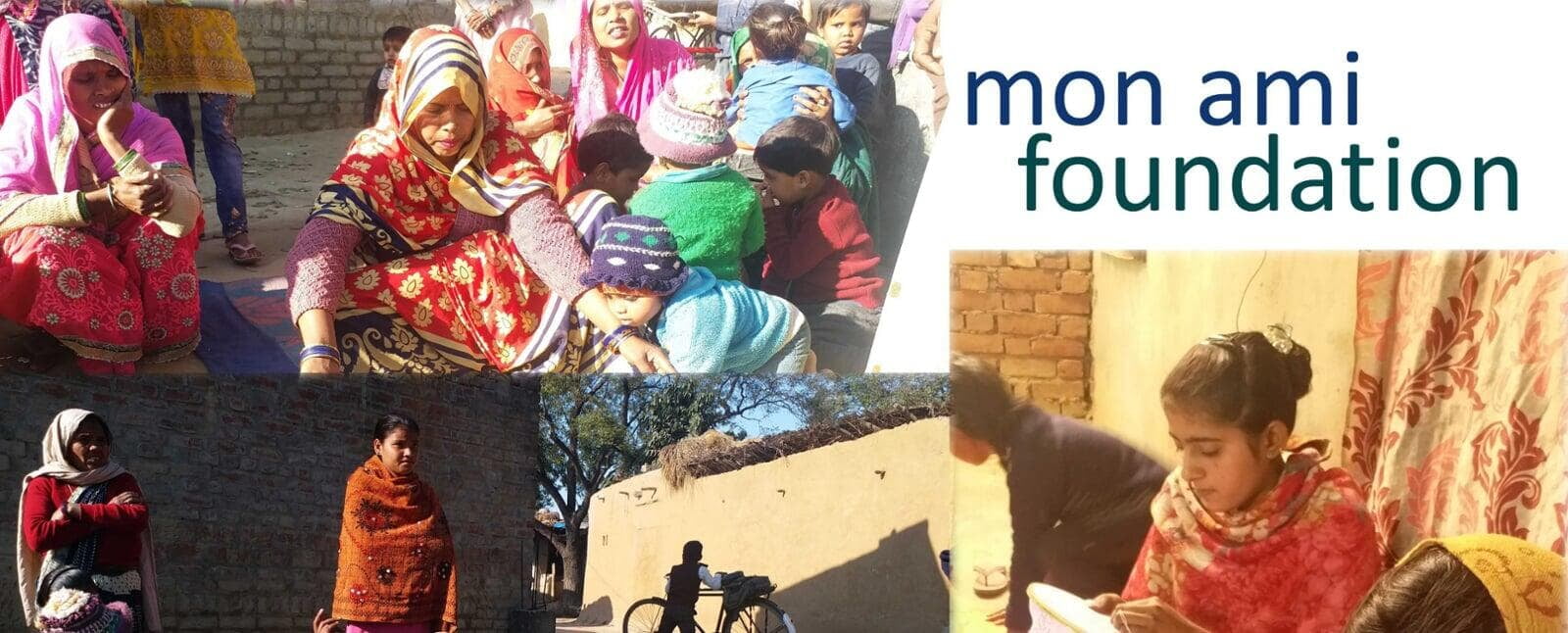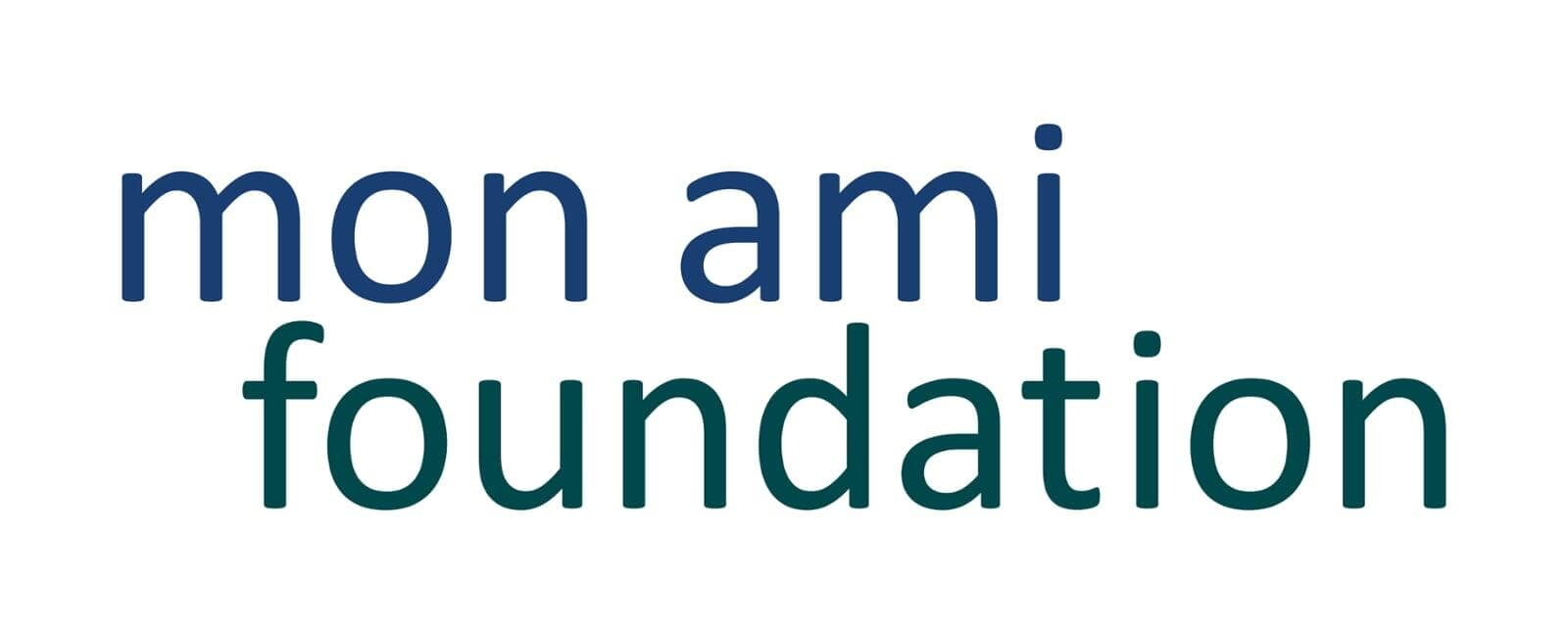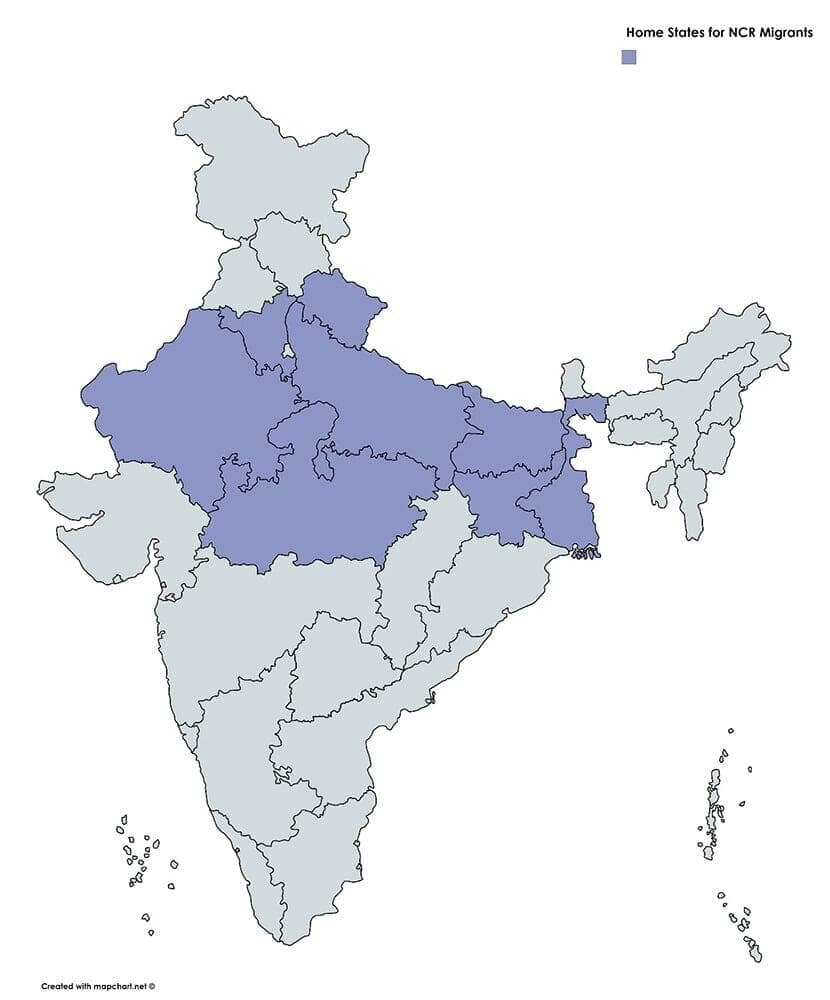
Research Report by Mon Ami Foundation
Part 1: Why are the migrants in NCR wanting to go home?
Executive Summary:
The research focused on migrant families who have been settled in NCR for a few years and in part 1 of the research the focus was to understand the reasons for wanting to go back to the villages. The top reasons are as follows:
Inability to manage expenses
Limited access to Dry Rations
Scared of Covid-19
Our recommendations include a national PDS intervention where migrants can access their rations anywhere in the country as per their entitlement and not required to mark presence in their home location. In the long run a smart card based PDS should replace the existing program.
Detailed Findings:
As per survey, the top reasons attributed by migrants:
Inability to manage expenses: Before the lock down, the average income was Rs.10,528/- however during the lock down, 84% of the migrants in this study have either not been paid or have only received partial salary forcing them to either dip into their meager savings or borrow money where possible
Over 70% of the expenses for the migrant families are fixed. Of which 50% is just Rent. The government has encouraged the landlords to defer the rent payments and most landlords have agreed in the same way for a 30-day delay. Unfortunately, this will mean that the migrant tenant will have to pay double next month, and with current income falling and no clarity for the next month, it is cheaper and better to go home now.
Ration cards entitlement at hometowns: More than 90% of migrants have ration cards and are also unable to collect rations from fair price shops in the cities with their address as of the hometown. Various govt and good Samaritan initiatives are helping feed the poor with either cooked meals or Dry Rations (including govt initiative to give basic ration even without ration cards). However Mobile connectivity has ensured that migrants are in constant contact with the families back home and are aware that rations as per entitlement (35kg + incremental short term as per announcements by FM) will be available once they return home.
Scared of Covid-19: Nearly 100% of the migrants we spoke to are aware of the Covid-19 issues and are staying at home to maintain social distance as far as possible. The government’s machinery and news channel have done a good job in awareness-raising. However, most migrants still believe that Covid-19 is Shehar ki Bimari (City-only disease) and that they are safer once they get back to the villages and away from the cities.
No communication from employers: The migrants work force is in lockdown and have no information on whether the employers will give them full, part or even no salary. The risk of waiting, especially with average 4+ dependents is nor worth taking when they know that the next best option of working under MNREGA is available in the villages. It is the certainty of Rs 200/- over a potential o Rs 450/- per day.
Recommendations:
A further increase in communication levels is needed. This is for people leaving for villages or even those who have made it back on the need for social distancing and those equally at risk at home needs to be made aggressively otherwise the current curve can go exponential. A further increase in communication levels is needed. This is for people leaving for villages or even those who have made it back on the need for social distancing and those equally at risk at home needs to be made aggressively otherwise the current curve can go exponential. Short-term measure to continue providing rations against Aadhar cards/voter ids.
The Government has the ability and resources to create an app in 2 weeks. No reason why PDS distribution can’t do the same. To ensure food availability against entitlement, the national PDS program with smart card solution must be implemented over the long run. We are confident the technology providers in India can rise to this challenge.
Research Design & Methodology:
Mon Ami team interviewed 100+ migrant families in NCR. Interviews involved one-on-one sessions with migrant workers, where open-ended questions were put to them. Their broad and open-ended responses were collected for this report.
The analysis performed was quantitative as well as qualitative depending on the type of question asked. The rationale behind asking this set of questions was to get to understand the ground requirements of the migrant families during the COVID-19 crisis and their plans post the lockdown.
Profile of participants:
The survey had equal participation from migrants involved in commercial and domestic work both as daily and monthly wagers. The average age of participants is 34 years and they have lived in NCR for 8.3 years and have 4+ dependents. The pre covid-19 income was Rs.10,528/-
Demographic coverage:
The Delhi NCR region was covered for carrying out the survey. The details are mentioned below:
Location in Delhi NCR: Greater Noida, Noida, Delhi, Gurugram
Home town of migrants in the study: Uttar Pradesh Rajasthan Madhya Pradesh Bihar West Bengal Haryana Jharkhand

